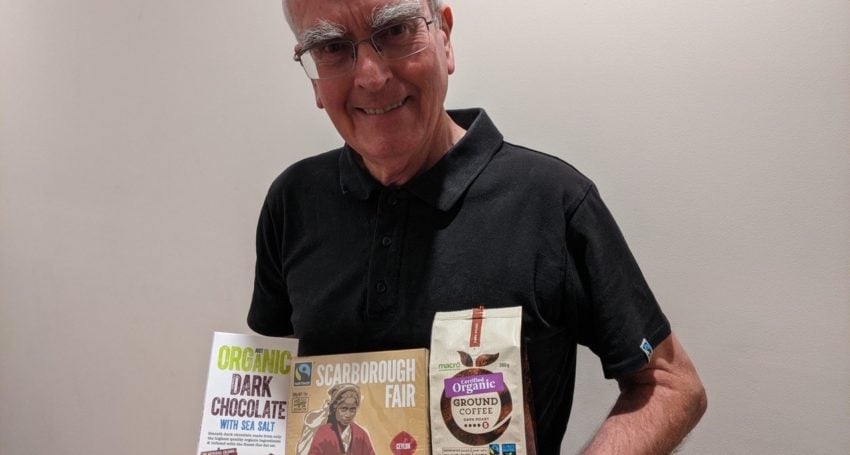Building back fairer
Features
“Many Australians, including Christians, generously donate to aid organisations who assist in times of disaster and in the development space by helping to lift living conditions. Fair trade can be seen as ‘aid through trade’. We all make purchases, including tea, coffee, chocolate, clothes and other goods. Fair trade is a way of doing differently what we already do every day,” says The Rev’d John Martin from Resource Church the Parish of Robina, as World Fair Trade Day approaches on 8 May

My first contact with fair trade products was in 1981in the rural NSW town of Coolamon where my wife and I sold tea from World Development Tea Coop. In the 1980s we temporarily moved to England where my wife became a volunteer rep with Traidcraft, a Christian organisation selling all sorts of fair trade items at churches and markets. Over the years, back in Australia we have seen fair trade becoming more mainstream.
Generally speaking, we, as consumers, want to purchase quality products at the lowest possible price. This often means that farmers, artisans and factory workers who produce our goods are paid well below a living wage. COVID-19 has compounded the problem for people in low-income countries, where many businesses have been decimated, not only by the spread of the virus, but by companies in the west who have cancelled orders with little thought of the impacts on people’s lives.
Fairtrade certification ensures that people in the supply chain are paid a living wage and work in good conditions. During the recovery from COVID-19, the temptation in some sectors has been ‘to build back bigger’; however, The World Fair Trade Organization has adopted the principle, ‘Build back fairer’. We have become aware of the imbalance between our living conditions and the living conditions of many people across the world.
Many Australians, including Christians, generously donate to aid organisations who assist in times of disaster and in the development space by helping to lift living conditions. Fairtrade can be seen as ‘aid through trade’. We all make purchases, including tea, coffee, chocolate, clothes and other goods. Fairtrade is a way of doing differently what we already do every day. It means asking questions like, ‘Who made this product?’ and ‘Were they paid fairly?’ and ‘What conditions are they working under?’
Advertisement
Fair trade views slavery and associated practices like trafficking as totally unacceptable, and thus fair trade tends to engage in sectors where these abuses are prevalent. Poverty is a key cause of these kinds of exploitation. By choosing Fair trade and helping those in the supply chain to earn better incomes, slavery and trafficking are reduced.
Fair trade Standards have minimum entry requirements based on the ILO conventions on forced labour as well as the UN protocol to prevent trafficking.
When Jesus was asked about the greatest commandments, he summarised by saying:
“…you shall love the Lord your God with all your heart, and with all your soul, and with all your mind, and with all your strength.’ The second is this, ‘You shall love your neighbour as yourself.’ There is no other commandment greater than these.” (Mark 12.30-31)
Accessing and purchasing fairtrade products is easy when you know what labels to look for. For example, look for fair trade packaging labels like this one on tea, coffee and chocolate products in both mainstream and specialty supermarkets:
Advertisement

With World Fair Trade Day (8 May) and Mother’s Day (9 May) to be celebrated on the same weekend, The Fair Trade Association Mother’s Day Fair Trade Shopping Guide 2021 is a useful source of products and gift ideas.
Shop Ethical and Baptist World Aid have also produced useful guides for various everyday products, including clothing items.
For me, fair trade is a great way to express the justice component of the Gospel of Jesus Christ. We all shop for consumables, clothing and other goods. Through fair trade we may pay a little more but we know that it is making a big difference to people in distant places.





